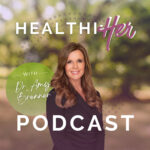
Mastering Blood Sugar: Unlocking Natural Strategies to Prevent Spikes
Even when you think you’re doing everything right, blood sugar issues can quietly find their way into your life. The key is to explore natural ways to prevent blood sugar spikes, a proactive approach that can significantly reduce the risk of developing health conditions linked to blood sugar, such as Alzheimer’s.
Join Cassie Brown and Dr. Amy Brenner as they delve into valuable tips aimed at helping those currently facing rapid blood sugar spikes or individuals looking to embrace healthier habits in their daily lives. Dr. Brenner, drawing from her own experience with blood sugar challenges, shares personal insights and the steps she has taken to maintain healthy levels.
In this episode, Amy Brenner MD & Associates Wellness Coach, Cassie, joins the conversation to shed light on how insulin spikes impact an individual, emphasizing the importance of addressing these issues early on. Discover the actionable steps to not only soften blood sugar spikes but also foster a lifestyle that promotes lasting well-being.
Tune in to empower yourself with the knowledge and strategies to prevent blood sugar spikes naturally, paving the way for a healthier, more balanced life.
Learn about Insulin or wellness treatments in Cincinnati:
/TREATMENT/WELLNESS-COACH
Ready to take a step towards wellness? Schedule with Cassie Brown
Follow us for the latest updates –
INSTAGRAM-@AMYBRENNERMD
FACEBOOK- @DOCTORAMYBRENNER
YOUTUBE-@AMYBRENNERMD



